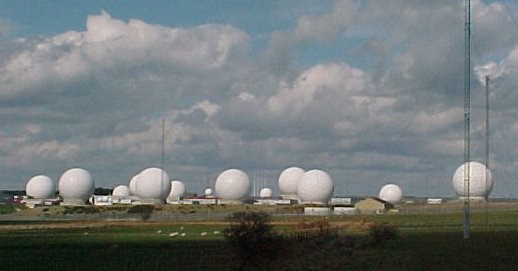Eveline Lubbers is one of the founders of Buro Jansen & Janssen, which stands for Thomson & Thomsonn, the two stumbling detectives featured in the Tintin comics. The comic strip originated in France named Dinant.
 Jansen & Janssen is a spin off
from the strong squatter movement of Amsterdam in the eighties.
Jansen & Janssen is a spin off
from the strong squatter movement of Amsterdam in the eighties."Activists had to deal with the police and secret services a lot, and the bureau started collecting strategies and contra- expertise. Jansen & Janssen started in 1985 and soon grew into an archive on police tactics with particular interest in analyzing how the force deals with critical powers. We published our research on how the secret service tried to infiltrate the activist movement, and on how they blackmailed asylum seekers to work for them.
 Jansen
& Janssen kept up with the changes of times and in 1994 revealed
how private detectives collect information about lobby groups and sell it to
the multinationals involved. Other areas which we have been interested in for
many years are the change in police tactics in fighting organized crime, the
influence of foreign agencies on seizing drugs traffic and the shift towards
more intelligence gathering, by the police."
Jansen
& Janssen kept up with the changes of times and in 1994 revealed
how private detectives collect information about lobby groups and sell it to
the multinationals involved. Other areas which we have been interested in for
many years are the change in police tactics in fighting organized crime, the
influence of foreign agencies on seizing drugs traffic and the shift towards
more intelligence gathering, by the police." 
The Launch of Mc Spotlight
In 1990, London Greenpeace (a small campaigning group not related to Greenpeace International) was sued for libel by McDonald's. Instead of backing off, Helen Steel and Dave Morris accepted the challenge and went to court. Now they are successfully defending every single line of their critical leaflet, cross-examining scientists and McDonalds officials and winning at points in the London High Court. The trial celebrates its second anniversary this summer and is due to continue until November. The activists, nicknamed the McLibel Two, found themselves a new stage to criticize McDonalds in a more detailed way than they could ever have dreamed of.
It is one of the best examples of using the courtroom as stage: here the facts can truly speak for themselves and McDonald's legal action backfires completely.
 The Church of Scientology had serious problems with xs4all
in the summer of 1995. An account holder had put the famous Fishman-affidavit
on his homepage.
The Church of Scientology had serious problems with xs4all
in the summer of 1995. An account holder had put the famous Fishman-affidavit
on his homepage.Scientology is not really a church, but more a profit seeking company. Or a sect if you wish. To become a full member you have to take several courses at different levels, and pay for them. The higher levels of these courses are kept secret, only available for those who reached those sacred heights. Ex-members are being terrorized and blackmailed to keep them from exposing their stories in the media.
Steven Fishman was one of them, he worked in the department of Scientology that had to deal with defectors. So he had some stories to tell when he left the sect. Scientology followed him around the world with slander, libel and lawsuits. But Fishman didn't give in. He even used the written material of the high- level courses, called OT's, as evidence in one of the cases in Court. This in fact made the so called secrets accessible for the public. They consist of complete nonsense, stories about UFO's, immortality and the bad things in your body you have to conquer, and kill, which is, of course, not possible without paid counseling from the Church.
Now that the OT's were in the Court's library, the holy secret could have been a sell out. But not for Scientology. They set up teams to work in shifts and study the affidavits in the library, so nobody else could ask for them. After a year or so Scientology managed to get a court order to remove the papers from the library again.
 Operation
Clambake: The Fight Against The Church Of Scientology On The Net.
Operation
Clambake: The Fight Against The Church Of Scientology On The Net.
